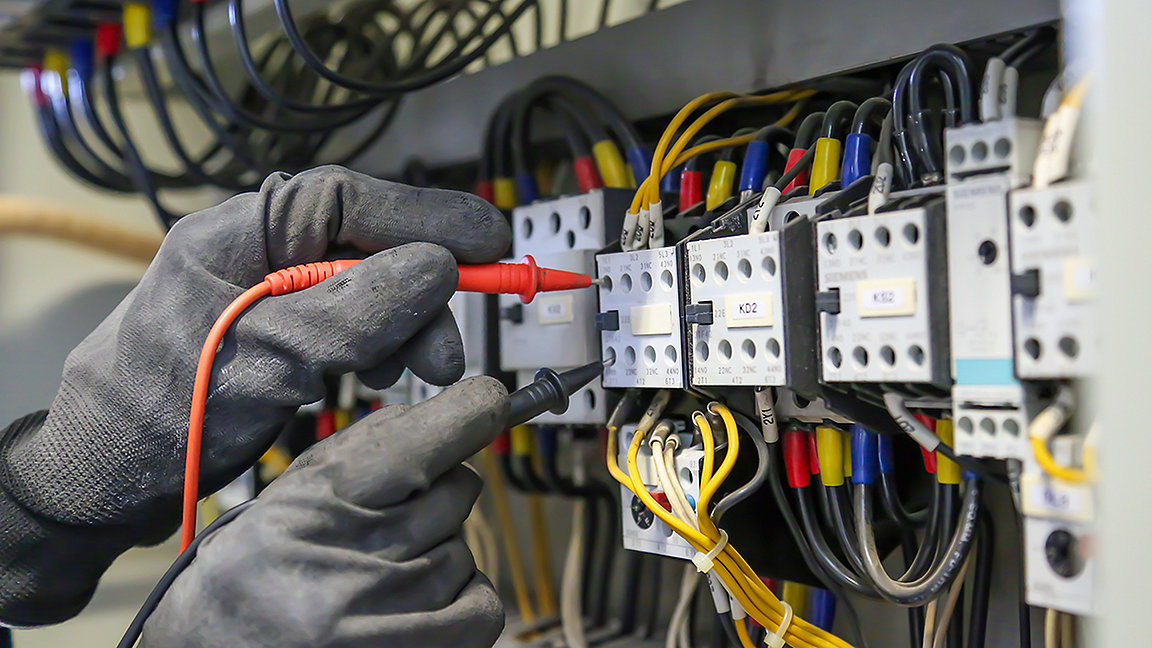
The poet T.S. Eliot called April 'the cruellest month'. If not cruel, it has at least proved disturbing for any England's private landlords who missed the deadline for an electrical inspection condition report (EICR) on their property. Failure to comply carries a fine of up to £30,000.
It was in summer 2018 that the government first announced its intention to require regular electrical safety checks in the private rented sector (PRS). The then housing secretary James Brokenshire announced that they would be introduced alongside the launch of a separate consultation on Building Regulations. However, it wasn't until January last year that we were told the checks were imminent.
The resulting Electrical Safety Standards in the Private Rented Sector (England) Regulations 2020 came into force on 1 June last year, but only applied to existing tenancies from the start of April this year. The regulations require PRS landlords to have the electrical installations in their properties inspected and tested by a qualified electrician every five years.
What an installation includes
An electrical installation comprises the fixed electrical equipment powered by the mains supply to the electricity meter. It includes cables, which are usually hidden in walls and ceilings; accessories, such as sockets, switches and light fittings; and the consumer unit, more commonly known as the fuse-box.
At charity Electrical Safety First, we define a good installation as one that has satisfactory earthing, to ensure that a fuse or circuit breaker can quickly clear an electrical fault before it causes a shock or fire. It will also include protective bonding, where this is required to reduce the risk and severity of shock to anyone touching two separate metal parts when there is a fault.
It must have correctly sized cables for the fuse or circuit breaker protecting the circuit, and offer sufficient circuits and sockets, with no obvious signs of damage to sockets or lights.
Furthermore, we strongly recommend that residual current devices (RCDs) are installed in the fuse-box. RCDs are lifesavers, as they automatically shut off the electricity should you touch something live, such as a bare wire. RCDs offer a level of protection that ordinary fuses and circuit-breakers cannot.

EICR requirements
Proof of an installation's safety is provided by an EICR, which must be issued by a qualified electrician. A copy of the EICR must be supplied to tenants and, if requested, to the local authority, which has responsibility for enforcing the new regulations.
Any necessary repairs identified in the report must be undertaken within 28 days, and the relevant certificate provided by the electrician conducting the work. Copies of a failed EICR and certificates for repair must be provided to the tenant and local authority; if a landlord fails to comply or undertake necessary repairs, they could face fines of up to £30,000.
As the owner of a property, the landlord is responsible for making sure that the person who completes the check is suitably competent. We therefore strongly recommend using an electrician or business registered with a government-approved competent person scheme; such services can be found on our directory.
Pushing for safety
Electricity causes around 20,000 domestic fires a year, which amounts to half of all accidental house fires in the UK. In fact, electricity instigates more fires than gas, and is responsible for more deaths than gas or carbon monoxide poisoning combined.
Nevertheless, electrical safety legislation has lagged behind that for gas: private landlords have been legally obliged to provide annual gas safety certificates since 1998, and as of October 2015 PRS properties have required carbon monoxide alarms. But with the rapid expansion of the PRS – especially the growing number of families with children in rented accommodation – safety concerns have increased.
Electrical Safety First has run a number of campaigns, calling for mandatory regular electrical safety checks in all UK homes for more than a decade. We have focused on the PRS since research we conducted with Shelter in 2014 indicated that private tenants are at greater risk from electrical fires.
More recently, the English Housing Survey 2019 to 2020 stated that 23% of the PRS failed to meet the Decent Homes Standard. The sector also contains the highest number of category 1 hazards – the most serious risks – under the Housing Health and Safety Rating System.
We were delighted when our work in Scotland helped introduce a legal requirement for mandatory electrical checks in its PRS in 2015. The Welsh government has also committed to introducing these checks in both the private and social rented sectors, but legislation is not expected until 2022. Northern Ireland has no requirement as yet for mandatory electrical safety checks in either sector.
Getting mandatory electrical checks for England's PRS on to the statute books has been a slow process, not helped by the fact that there have been ten housing ministers over the past ten years. England's new PRS regulations come some years after the tragic 2008 electrocution of Thirza Whittall, a mother who was killed by an unidentified electrical fault when running a bath. An inquest heard the PRS property had not been checked since 1981.
Meanwhile, a prevention of future deaths report – and call for regular electrical checks in PRS properties – was issued by a coroner in 2019 following the death of Prof. John Alliston, who was electrocuted by a faulty cable in the garden of a privately rented property two years previously.
'Getting mandatory electrical checks for England's PRS on to the statute books has been a slow process, not helped by the fact that there have been ten housing ministers over the past ten years'
Landlords caught unawares
While a requirement for electrical checks in the PRS has been on the cards for some time, the regulations that came into effect this April still took some landlords by surprise.
Electrical Safety First operates a general enquiry line, and we have received a considerable number of calls and emails from landlords anxious to find out more about their new obligations – and of course to avoid a significant fine.
The National Inspection Council for Electrical Installation Contracting, the largest certification body for electricians, also received almost 200 more calls each day – a jump of 56% in March compared with February.
Not surprisingly, many landlords have queried whether the deadline for EICRs for existing tenancies had been extended because of the pandemic. Not only have some tenants been shielding – and consequently uncomfortable about strangers entering their home, even for agreed repairs – some landlords have long-standing issues with gaining access for a variety of reasons.
Although the deadline was not extended, the government did announce that landlords will not be in breach of the regulation if they can demonstrate that they have taken all reasonable steps to comply. The purpose of these laws is to target those landlords who are completely unaware of or who have deliberately turned a blind eye to electrical safety. We advise landlords to keep a record of their communications with tenants, to show that they have made every effort to comply with the new regulations.
There is still, however, some confusion around the COVID-19 exemption clause. Some sources reported that landlords would only be exempt if they had already been served with a remediation notice by a local authority but couldn't get access or reasonably complete the work due to the pandemic. This is incorrect: whether the landlord has been served a notice or not, they will not be prosecuted as long as they have evidence to show they have done all they reasonably can to undertake an EICR.
Confusion and concern
Other queries we received covered issues from frequency of checks to cost. For example, if a landlord has carried out an EICR on a property in the past four years then another one will only be required five years after this date.
Another frequently asked question has been whether landlords need an EICR every time a new tenant moved in. This is not required, as a report is only needed every five years, so long as no faults are identified in the meantime. However, landlords must supply new tenants with a copy of the current EICR at the start of their tenancies.
Regular electrical checks in the PRS do not represent a significant burden on landlords. This requirement simply enforces what all good landlords already do, by ensuring the electrical installations in their properties are safe.
The expense of an EICR is far from excessive, at between £150 and £300 depending on the size and location of the property – and the presumption that no remedial safety work is needed. As this amounts to between £30 and £60 a year, it seems a small price to pay to protect people and property.
But it is not just in the PRS that there are safety concerns. The UK still offers different levels of protection for different tenures. So we are now calling for the social rented sector to have mandatory, five-yearly safety checks for electrical installations.
Electrical Safety First believes that there should be parity for all tenants, regardless of whether they rent in the private or social rented sector. Given that the transition to net-zero carbon will inevitably increase reliance on electricity, reducing the associated risks will become even more fundamental to safety in future.
Lesley Rudd is chief executive of Electrical Safety First, a UK consumer protection charity dedicated to preventing deaths, injuries and fires caused by electricity
Contact Electrical Safety First: Email
Related competencies include: Landlord and Tenant, Leasing/letting, Legal/regulatory compliance, Housing maintenance, repairs and improvements, Housing management and policy
Installation information
Electrical Safety First offers a range of digital tools and guides to support landlords and tenants. For industry-recognised information on electrical installation condition reporting, see our Best Practice Guide 4.
